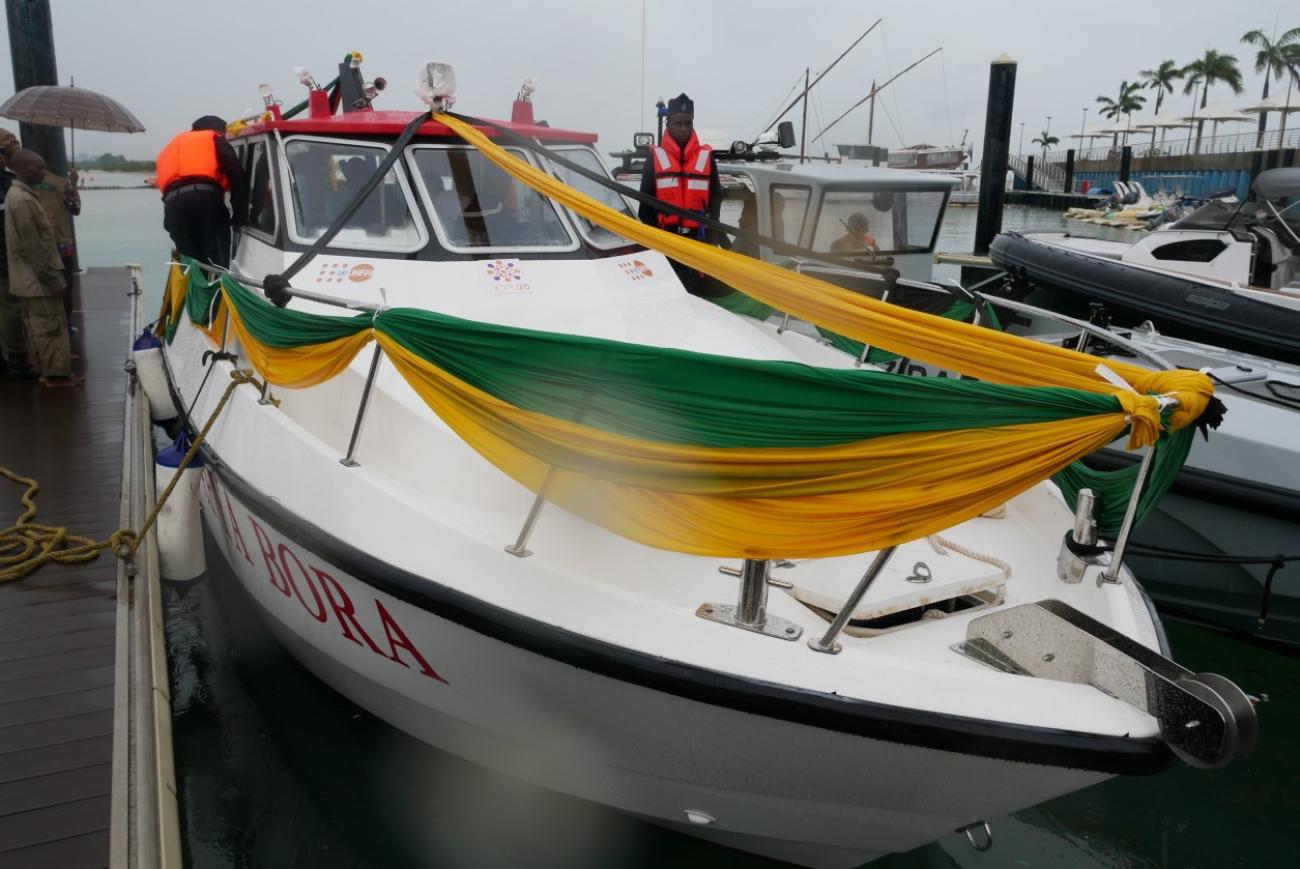The boat will transport women experiencing complications during pregnancy to hospitals and other health facilities.
It was raining as the “Afya Bora” was launched on to the waters of Zanzibar, but nothing could dampen the mood. After two years of consultations with the Ministry of Health (MoH) Zanzibar, the Zanzibar Maritime Authority, and UNFPA Procurement Branch, Copenhagen, the ambulance boat – the first of its kind – had arrived in Zanzibar from Sri Lanka and was ready to go into action.
With UNFPA Tanzania’s support, and with funding from the Government of Canada as part of the Afya Bora project, Ms. Jacqueline Mahon, UNFPA Representative in Tanzania, officially handed over the boat to Hon. Hamad Rashid, Minister of Health in Zanzibar, at a colourful ceremony attended by Shamata Shaame, Deputy Minister, President's Office Regional Administration and Local Government offices, high-level officials from the MoH, Zanzibar, and development partners.
The launch of the ambulance boat is part of the Hakikisha Uzazi Salama Campaign – with its clearly articulated five-year roadmap – which sees the Revolutionary Government of Zanzibar ramp up efforts to end preventable maternal and newborn mortality. The ambulance boat will be indispensable to addressing one of the significant contributors to maternal mortality – delays in seeking emergency care – and is part of UNFPA Tanzania’s wider support to Zanzibar to strengthen effective referral systems, both on land and at sea.
The ambulance boat, stationed in Chake Chake, Pemba Island – one of the main islands of the Zanzibar Archipelago – will serve the small surrounding islands of Kojani (Wete District), Makoongwe and Kisiwa Panza (Mkoani District), Fundo, Njao, Uvinje and Kokota. It will transport women experiencing complications during pregnancy to the facilities at Wete District (Pemba North) and Chake Chake and Mkoani Hospitals – all equipped to provide comprehensive, emergency obstetric and newborn care. Manned by KMKM, a special force from the navy, staffed by healthcare providers trained to provide basic emergency care, and kitted out with 500kg of medical equipment – the boat will cut traveling times by half.




